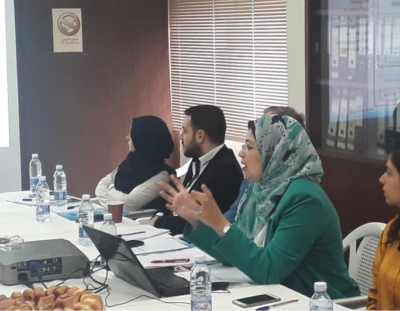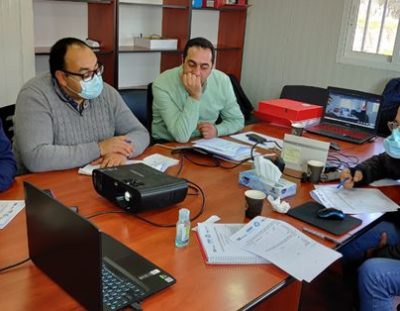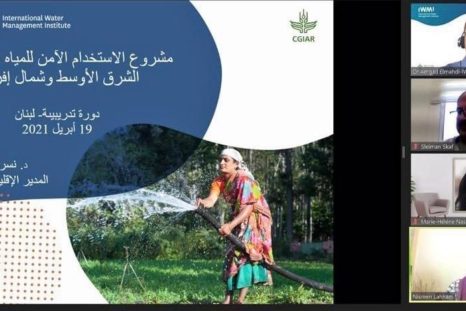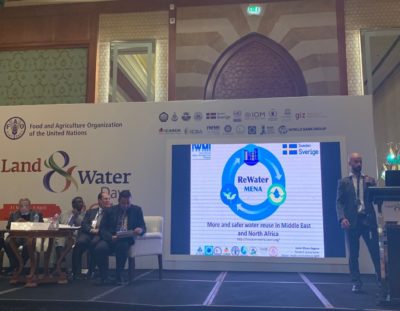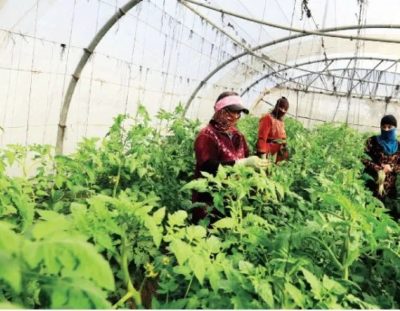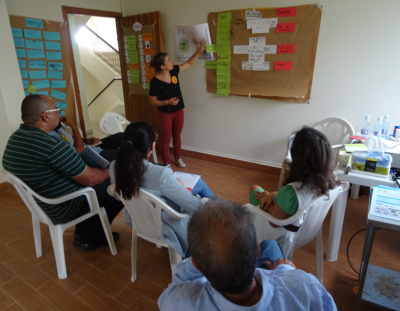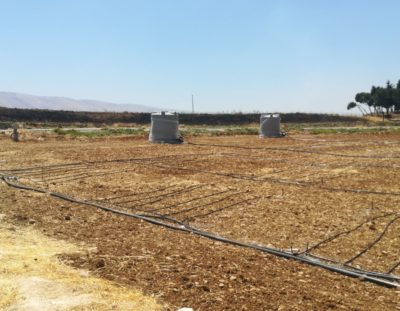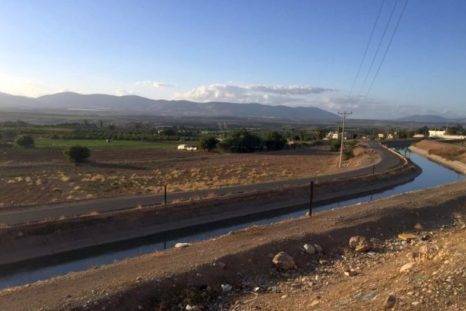Pages
May 14, 2019As population grows and farming expands, the demand for water is steadily rising. Massive human displacement along with other pressures, such as climate change, further aggravates water stress in our region. To meet this challenge, we need innovative water management solutions, including more safe water reuse practices, an approach which is implemented by the International WATER Management Institute (IWMI) through its project, ReWater MENA.
February 15, 2021On Monday 15 February 2021, a meeting was held at the premises of the Bekaa Water Establishment (Zahleh) to launch the survey that will be conducted with farmers in the framework of the Water Reuse Local Studies conducted by ReWater MENA and its partners in Lebanon.
May 11, 2021The workshop aims to build and strengthen the capacities of different stakeholders and participants from Lebanon in the field of safe use of wastewater, building on four training modules. The modules include: Stakeholders’ acceptance and gender integration in reuse interventions, assessing the Economic Feasibility for Integrated Wastewater Reuse (WWR) Projects: From Formulation to Reporting, Governance and Reuse Safety Plans, and Water Reuse Technologies.
April 3, 2019During a session held on April 1, 2019, at Land and Water Days, which took place in Cairo from March 31 to April 4, 2019, Javier Mateo Sagasta, leader of the ReWater MENA project (J.Mateo-Sagasta@cgiar.org), called for expressions of interest in contributing to a three-volume regional sourcebook.
January 27, 2021A call to develop the role of women in developing the irrigation and agricultural sectors.
October 14, 2019On Thursday 3rd of October (2019), the ReWater MENA project invited a diverse group of approximately 35 stakeholders to join the project’s first National Learning Alliance (NLA). The NLA took place at the Lebanese Agricultural Research Institute (LARI) in Fanar-Lebanon where the group of participants had the opportunity to discuss and share ideas around to the potential of using recycled water in agriculture in Lebanon.
August 18, 2019In July 2019, the Lebanese Agricultural Research Institute (LARI), a key partner of the ReWater MENA project in Lebanon, kicked off a two year-field trial in the Bekaa valley. Established at LARI’s Tel Amara station in central Bekaa, on the right bank of the Litani River, this pilot will serve to assess the health and environmental risks associated with irrigating fresh vegetables from different water sources of varying quality.
July 12, 2022
March 18, 2019The ReWater Mena project convened its partners in Cairo on February 12-14, 2019, for training in stakeholder engagement, facilitated by a consultancy firm. Partners took part in a simulation game dealing with project case studies to examine issues around strategic planning and management as well as different approaches to stakeholder engagement.
August 25, 2021Jordan is the second most water scarce country in the world. Jordan’s annual renewable water resources are less than 100 m3 per person, significantly below the threshold of 500 m3 per person which defines severe water scarcity. While more than 98% of the population has access to an improved water source, only 93% access a safely-managed source and 86% to a piped network.
May 14, 2019
As population grows and farming expands, the demand for water is steadily rising. Massive human displacement along with other pressures, such as climate change, further aggravates water stress in our region. To meet this challenge, we need innovative water management solutions, including more safe water reuse practices, an approach which is implemented by the International WATER Management Institute (IWMI) through its project, ReWater MENA.
February 15, 2021
On Monday 15 February 2021, a meeting was held at the premises of the Bekaa Water Establishment (Zahleh) to launch the survey that will be conducted with farmers in the framework of the Water Reuse Local Studies conducted by ReWater MENA and its partners in Lebanon.
May 11, 2021
The workshop aims to build and strengthen the capacities of different stakeholders and participants from Lebanon in the field of safe use of wastewater, building on four training modules. The modules include: Stakeholders’ acceptance and gender integration in reuse interventions, assessing the Economic Feasibility for Integrated Wastewater Reuse (WWR) Projects: From Formulation to Reporting, Governance and Reuse Safety Plans, and Water Reuse Technologies.
April 3, 2019
During a session held on April 1, 2019, at Land and Water Days, which took place in Cairo from March 31 to April 4, 2019, Javier Mateo Sagasta, leader of the ReWater MENA project (J.Mateo-Sagasta@cgiar.org), called for expressions of interest in contributing to a three-volume regional sourcebook.
January 27, 2021
A call to develop the role of women in developing the irrigation and agricultural sectors.
October 14, 2019
On Thursday 3rd of October (2019), the ReWater MENA project invited a diverse group of approximately 35 stakeholders to join the project’s first National Learning Alliance (NLA). The NLA took place at the Lebanese Agricultural Research Institute (LARI) in Fanar-Lebanon where the group of participants had the opportunity to discuss and share ideas around to the potential of using recycled water in agriculture in Lebanon.
August 18, 2019
In July 2019, the Lebanese Agricultural Research Institute (LARI), a key partner of the ReWater MENA project in Lebanon, kicked off a two year-field trial in the Bekaa valley. Established at LARI’s Tel Amara station in central Bekaa, on the right bank of the Litani River, this pilot will serve to assess the health and environmental risks associated with irrigating fresh vegetables from different water sources of varying quality.
July 12, 2022
March 18, 2019
The ReWater Mena project convened its partners in Cairo on February 12-14, 2019, for training in stakeholder engagement, facilitated by a consultancy firm. Partners took part in a simulation game dealing with project case studies to examine issues around strategic planning and management as well as different approaches to stakeholder engagement.
August 25, 2021
Jordan is the second most water scarce country in the world. Jordan’s annual renewable water resources are less than 100 m3 per person, significantly below the threshold of 500 m3 per person which defines severe water scarcity. While more than 98% of the population has access to an improved water source, only 93% access a safely-managed source and 86% to a piped network.

